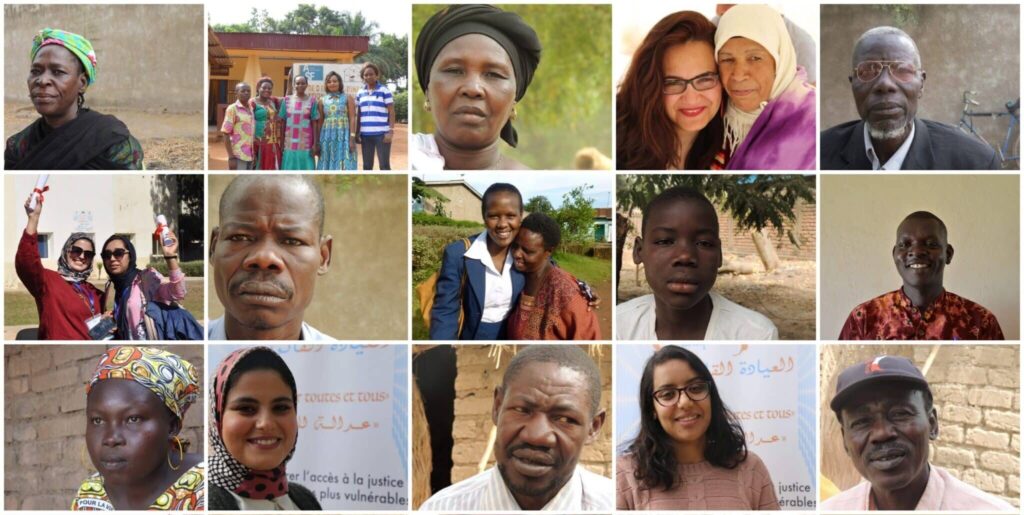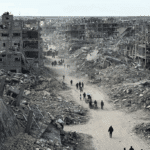
As authorities initially downplayed the gravity of the Covid-19 health crisis, a sense of astonishment prevailed throughout the world at the unprecedented nature and scale of the measures that were later taken. More than half of the world’s population has found itself locked down, with varying economic, social, physical and mental consequences on individuals depending on personal and political context.
Like everyone else, ASF has had to adapt, in very different and sometimes very volatile environments. Very quickly, a tendency emerged in all the monitored countries, whether they were authoritarian regimes, states in post-conflict situations, in democratic transition, or even so-called consolidated democracies: human rights were almost systematically absent from the political discourse and the authorities’ decision-making.
Each measure adopted in the context of the health crisis has led to the limitation of rights and freedoms, sometimes in a domino effect. For example, lockdown measures not only affected the right to freedom of movement, but also the right to education, the right to work, and in some cases even the right to health or food.
However, human rights can only be limited by law and in a way that is strictly proportionate to the goal pursued. This goes hand in hand with the principle of necessity according to which, faced with a range of options, the State must necessarily choose the one that least infringes rights and freedoms. While these principles should have guided reflection, they received little echo in political decision-making.
Aiming to defend and promote a human rights-centred approach, ASF and its partners developed a framework for monitoring the impact of Covid-19 measures on human rights and the principles of the rule of law. It started in March 2020 in Tunisia, Uganda, Indonesia, the Democratic Republic of Congo and Belgium. This monitoring has been complemented by numerous actions regarding access to justice, particularly on the issue of prison overcrowding. The systematic integration of a “Covid-19 approach” has allowed ASF to highlight how essential principles of protection and promotion of human rights have been breached in all political systems. The data collected in these few countries illustrate a global trend, providing an alarming picture of the situation.
The absence of a both international and regional governance frameworks on these issues has led to ad hoc chain reactions, with a quasi-systematic strengthening of executive powers, even when less human rights-infringing solutions were available to policy makers. This led to an important personification of the health response. These unprecedented reinforcements of executive powers, as seen in Tunisia or Uganda, made the respect for the human rights potentially subject to arbitrariness for some groups of the population.
It was also repeatedly observed that the measures adopted were unclear, both in terms of their scope over time and in terms of their content. Failure to comply with social distancing or containment measures has often been criminalised, repeatedly undermining the principle of legality for offences and penalties. In Indonesia, for example, sanctions have been imposed by administrative authorities – rather than national representation – and sometimes with no legal basis. Much room has been left for interpretation by the security forces, allowing arbitrariness and potential abuse, particularly in states that are already heavily policed. In some cases, authorities did not hesitate to use Covid-19 measures to further restrict civic space and silence human rights defenders.
This tendency to criminalize, which went as far as incarcerating offenders, has thus been at odds with the very logic of social distancing advocated by the authorities in contexts of severe prison overcrowding. The suspension of judicial activities has also led to potentially illegal detention of people in pre-trial or provisional detention. Calls for prison deflation, which already existed prior to the health crisis, have multiplied in the face of the increased vulnerability of detainees and the disproportionate violation of their rights caused by the suspension of visiting rights. Although some States, such as Uganda and Tunisia, finally released – although sometimes only provisionally – prisoners nearing the end of their sentences or convicted for minor offences, the announcement effect quickly faded as prison occupation quickly grew back to similar or higher rates compared to pre-crisis data.
The situation of detainees is only one illustration of the differentiated, and potentially discriminatory, impact of the health measures suffered by categories of people already in a situation of vulnerability. The upsurge in cases of gender-based violence, particularly in the domestic context, has been systematic. Pre-existing vulnerabilities have further exposed people to the health crisis, and to its devastating socio-economic consequences. A study carried out in Belgium highlighted this very clearly: even though the measures taken were neutral in their formulation, they produced particularly harmful effects on migrant people, racialised people and detainees. This uneven impact on groups of the population could be characterized as indirect discriminiation.
Finally, the various trends observed exacerbated the structural and individual weaknesses that existed prior to the crisis. At a time when prospects for a way out of the crisis are themselves uncertain, it is more important than ever to continue and anchor this monitoring work and, above all, to integrate the human rights-based approach into the governance and evaluation mechanisms put in place throughout this year. Civil society has overly been relegated to their role as watchdogs, without being guaranteed a space to participate constructively – notably on the basis of field data, such as those collected by ASF and its partners – in these frameworks for dialogue.



